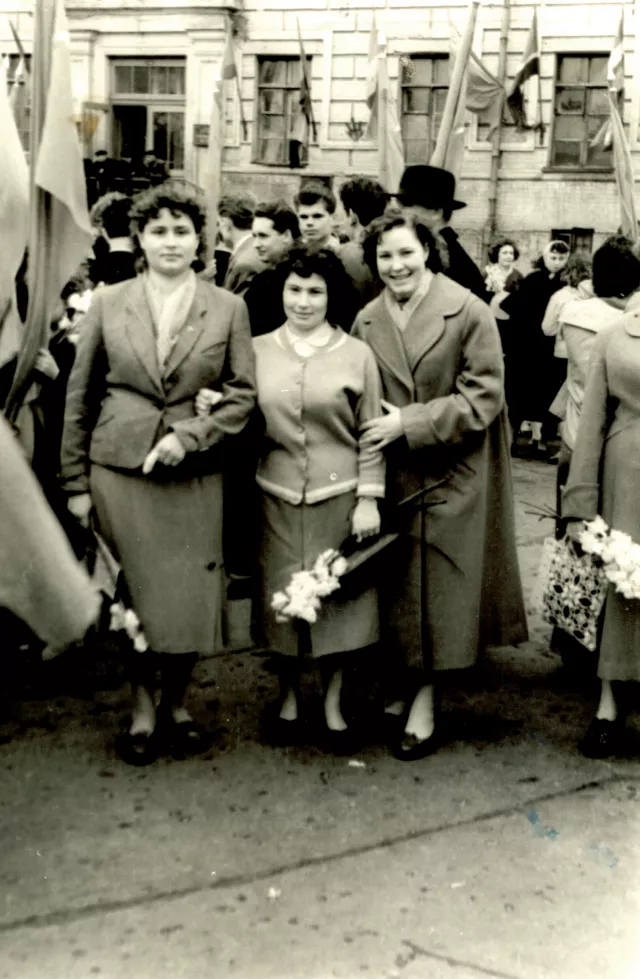My fellow employees from the shoe factory and I (in the center) on the parade on 1st May in 1957 in Kiev.
After finishing lower secondary school I entered the Library Faculty at the College of Culture and Education. After finishing college I got a job assignment in the village of Vysokoye, Zhitomir region [200 km from Kiev]. Graduates usually got assignments in distant locations. I became a librarian there, but I had a very small salary - 400 rubles. My mandatory job assignment was to last three years. [This was a standard requirement that was to be followed by all graduates from higher educational institutions]. I rented a room from an old woman and had hardly enough money to make a living. Every now and then my uncle and his wife sent me food parcels. I had to stay in this village for another half year until they found a replacement for me.
I returned to Kiev in 1957, but I couldn't find a job as a librarian there. I couldn't live at my uncle's expenses and thus went to work in a shoe factory. At first I was a laborer at the storage facility, and later I became a laborer at the shop of the factory. I liked my job. The majority of the employees at the factory were Jewish. The director and chief engineer of the factory were also Jews. Of course, there was no anti-Semitism at the factory.
Fira Shwartz with her colleagues
The Centropa Collection at USHMM
The Centropa archive has been acquired by the United States Holocaust Memorial Museum in Washington, DC.
USHMM will soon offer a Special Collections page for Centropa.
Academics please note: USHMM can provide you with original language word-for-word transcripts and high resolution photographs. All publications should be credited: "From the Centropa Collection at the United States Memorial Museum in Washington, DC". Please contact collection [at] centropa.org.








